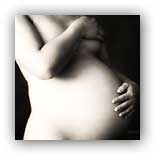|
Among US pregnant women, 1 in 10 reported any
alcohol use and 1 in 33 reported binge drinking in
the past 30 days, defined as 4 or more alcoholic
beverages on one occasion. This means that about a
third of women who consume alcohol during pregnancy
engage in binge drinking according to a report in
CDC’s Morbidity and Mortality Weekly Report (MMWR).

“We know that alcohol use during pregnancy can cause
birth defects and developmental disabilities in
babies, as well as an increased risk of other
pregnancy problems, such as miscarriage, stillbirth,
and prematurity,” said Coleen Boyle, Ph.D., director
of CDC’s National Center on Birth Defects and
Developmental Disabilities. “This is an important
reminder that women should not drink any alcohol
while pregnant. It’s just not worth the risk.”
Fetal alcohol spectrum disorders (FASDs) are a group
of conditions that can occur in a person whose
mother drank alcohol during pregnancy. FASDs are
completely preventable: if a woman does not drink
alcohol during pregnancy, her child has zero risk of
an FASD.
The study used data from CDC’s Behavioral Risk
Factor Surveillance System (BRFSS), a state-based,
landline and cell phone survey of the U.S.
population. To estimate the prevalence of alcohol
use and binge drinking, researchers used 2011-2013
BRFSS data for all 50 states and the District of
Columbia for women aged 18-44 years.
Among pregnant women, alcohol use was highest among:
Those aged 35-44 years (18.6 percent);
College graduates (13 percent);
Unmarried women (12.9 percent).
For comparison, 1 in 2 (53.6 percent) non-pregnant
women in the United States aged 18 to 44 years
reports drinking alcohol in the past 30 days and
18.2 percent of non-pregnant women report binge
drinking.
Among women who reported binge drinking in the past
30 days, pregnant women reported a significantly
higher frequency of binge drinking than non-pregnant
women (4.6 and 3.1 episodes respectively).
The prevalence of any alcohol use and binge drinking
among pregnant and non-pregnant women is slightly
higher than estimates reported for 2006-2010.
However, this is likely due to methodological
changes to the BRFSS in 2011, such as the addition
of cell phone surveys, rather than actual shifts in
the prevalence of alcohol use.
“Women who are pregnant or might be pregnant should
be aware that there is no known safe level of
alcohol that can be consumed at any time during
pregnancy. All types of alcohol should be avoided,
including red or white wine, beer, and liquor,” said
Cheryl Tan, M.P.H., lead author of the study and an
epidemiologist in CDC’s National Center on Birth
Defects and Developmental Disabilities.
For more information
Fetal alcohol spectrum disorders (FASDs)
MDN |